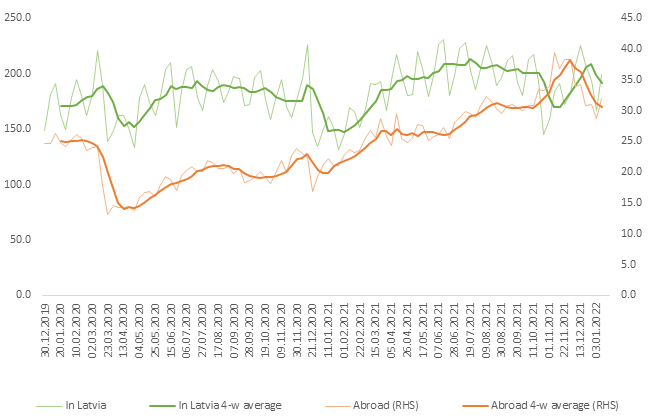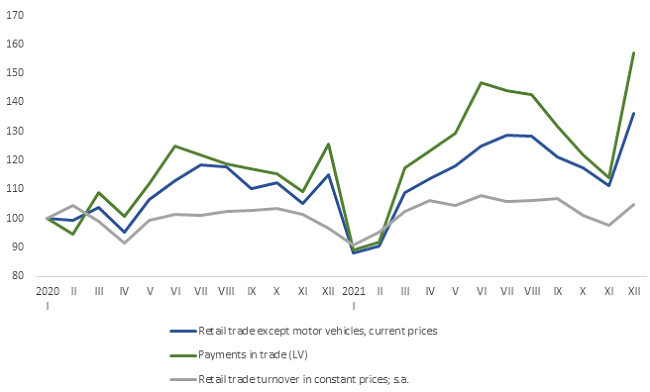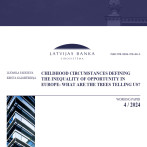Along with migrating birds: economic growth in the fourth quarter is not a reason for complacency

Last year's Christmas and New Year celebrations were different to what we experienced in 2020 because of both the possibilities to buy and present gifts in person and to watch the fireworks illuminating the sky closer to the midnight hour rather than before 8.00 in the evening. In other words, this holiday season shoppers had more gift-buying options, with no curfew in place. However, it was too early for enjoying champagne as the state of emergency has already been extended, the soaring energy prices require long-term solutions for the diversification of energy sources and the geopolitical risks surrounding the growth outlook have intensified.
The fourth quarter of 2021 saw some heterogeneity with changing restrictions in the provision and receipt of services in place. Thus, the behaviour of some households resembled that of migrating birds: to avoid unfavourable conditions, they moved to places with more favourable ones. The payment card statistics published by Latvijas Banka (Chart 1) show that payments abroad by payment cards issued in Latvia soared during the period when the tightest restrictions were in place. This implies that the import content of consumption most likely continued to grow also in the fourth quarter.
Chart 1. Value of sent card-based payment transactions (millions of euro).

On the horizontal scale: the first date of the week.
Card payments abroad recorded an increase already in the third quarter of 2021 as people went on previously postponed holiday trips; however, a similar replacement effect in consumption was likely to have intensified also in the fourth quarter, thus weighing on economic growth.
The flash estimate published by the Central Statistical Bureau shows that in the fourth quarter of 2021, GDP might have remained broadly unchanged from the third quarter (–0.1%) and increased by 3.1% year-on-year in seasonally adjusted terms. While detailed data will only be available in a month, the short-term sectoral data suggest that the transport sector might have been faring relatively better, while the manufacturing growth, particularly for the domestic market needs, and the development of trade might have been hindered by tighter restrictions. In December, retail trade benefited from eased restrictions during the Christmas and New Year celebrations, and this was reflected in the rise in the retail trade turnover of the respective month (Chart 2), while the limited in-store shopping opportunities acted as a headwind for a large part of the quarter.
Chart 2. Value of sent card-based payment transactions and retail trade turnover (January 2020 = 100).

* payments in trade are not precisely attributable to retail trade
Data on deposits suggest an increase in the savings rate at the turn of the last year; however, they might start "melting" somewhat in the near future as a result of higher consumption (i.e. higher consumer prices). At the same time, the government support measures will mitigate the direct impact of the soaring energy prices on the changes in the purchasing power, inter alia, the temporary benefits to support seniors and families with children will stabilise the level of consumption in the first quarter of 2022, as well as will maintain the consumer confidence. The confidence survey data for January published by the European Commission show that price rise expectations among consumers and retailers have not changed drastically; however, the consumer sentiment has overall deteriorated (particularly the assessment of the household's financial situation in the current and the coming 12 months), while the retailer sentiment and that in the services sector slightly improved.
The rapid spread of the Omicron variant of Covid-19 and the associated extension of the state of emergency as well as lower labour availability will hamper the return to faster economic growth in the first quarter of 2021. However, the pandemic developments recently are increasingly overshadowed by the geopolitical risks that may affect not only the future path of energy prices, but also the investment and foreign trade dynamics in the quarters to come.
Textual error
«… …»






